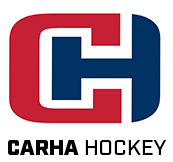Breakfast is often called the most important meal of the day, and for young hockey players, it truly is. Whether you’re gearing up for a day of school or heading to an early practice or game, breakfast fuels your energy, strength, and focus. Plus, it’s essential to start your calorie intake early—teen hockey players need to eat a lot to fuel their training and growth, and skipping breakfast makes it hard to meet your daily needs.
If you’re new to eating breakfast, you can start small and gradually work your way up to a more substantial meal as your body adjusts. Let’s dive into why breakfast is so important and how to tackle it, whether it’s a regular school day or an early morning practice or game.
Why Skipping Breakfast Isn’t an Option
Skipping breakfast might seem convenient, but it has real downsides for energy, focus, and performance—both in school and on the ice. When you miss breakfast, you’re more likely to feel tired, distracted, and even a little irritable. It’s also harder to make up for the missed calories throughout the day, which can leave you short on energy later.
Impact on energy and focus: Eating breakfast replenishes the energy your body uses overnight and gets you ready for the demands of the day ahead. Without it, you’re likely to feel drained, sluggish, and less able to focus during classes or practice.
Hard to catch up on calories: As a teen hockey player, your energy needs are higher than average. Breakfast gives you an early start on meeting these needs, and skipping it makes it much harder to consume enough calories throughout the day. To support muscle recovery and growth, you need a consistent intake of fuel—starting with a solid breakfast.
Developing a habit: If you’re not used to eating breakfast, don’t worry. Start small with something light, like a piece of fruit or a slice of toast. Over time, your body will adjust, and you’ll start feeling hungry in the morning. Gradually build up to a balanced breakfast that includes carbs, protein, and healthy fats.
School Day Breakfasts: Balanced and Filling
On school days, your breakfast should be balanced and filling to keep you energized and focused until your next meal. Aim to include a mix of protein, carbohydrates, and fibre, which will help you stay full and provide long-lasting energy.
Examples:
- Greek yogurt with berries and granola: Greek yogurt is high in protein, and adding berries and granola gives you fibre and complex carbs for sustained energy.
- Eggs with whole-grain toast and avocado: Eggs provide protein, while whole-grain toast offers fibre, and avocado adds healthy fats for a well-rounded breakfast.
- Smoothie with protein powder, oats, and a banana: A smoothie is quick to make and packed with nutrients. Blend protein powder, oats, and a banana for a balanced, portable meal.
A balanced breakfast like this gives you steady energy, supporting both your learning and physical activity throughout the morning.
Early Morning Practice or Game Day Breakfasts: Quick and Light
For early morning practices or games, you may not have the time (or appetite) for a full breakfast. In these cases, focus on easily digestible carbs that provide quick energy without sitting heavy in your stomach. These meals should be low in fat, protein, and fibre, as these nutrients take longer to digest.
Examples:
- Banana and a small handful of dry cereal: Bananas provide quick carbs, and a handful of low-fibre cereal adds more energy without feeling too heavy.
- Plain toast with a light spread of jam or honey: Toast with a bit of jam or honey gives you simple carbs for fast energy and is easy to digest before an early practice.
- Fruit smoothie with minimal add-ins (e.g., just fruit and a little juice): Blend up fruit and a small amount of juice to get quick-digesting carbs and hydration in one.
These lighter breakfasts help fuel your workout or game without the discomfort of a heavier meal. They’re easy to prepare and digest quickly, giving you the energy boost you need without having to eat hours in advance.
Take Away
Breakfast is a game-changer for teen hockey players, fueling both school days and early practices or games. By starting your day with a good meal, you set yourself up for success, both on the ice and in the classroom. If you’re new to breakfast, remember to start small and gradually build up as your body adjusts.
A consistent breakfast habit doesn’t just help you meet your calorie needs—it helps you feel more energized, focused, and ready to take on whatever the day brings. So whether it’s a balanced meal on a school day or a quick carb boost before a morning game, make breakfast a priority and see the difference it makes!
